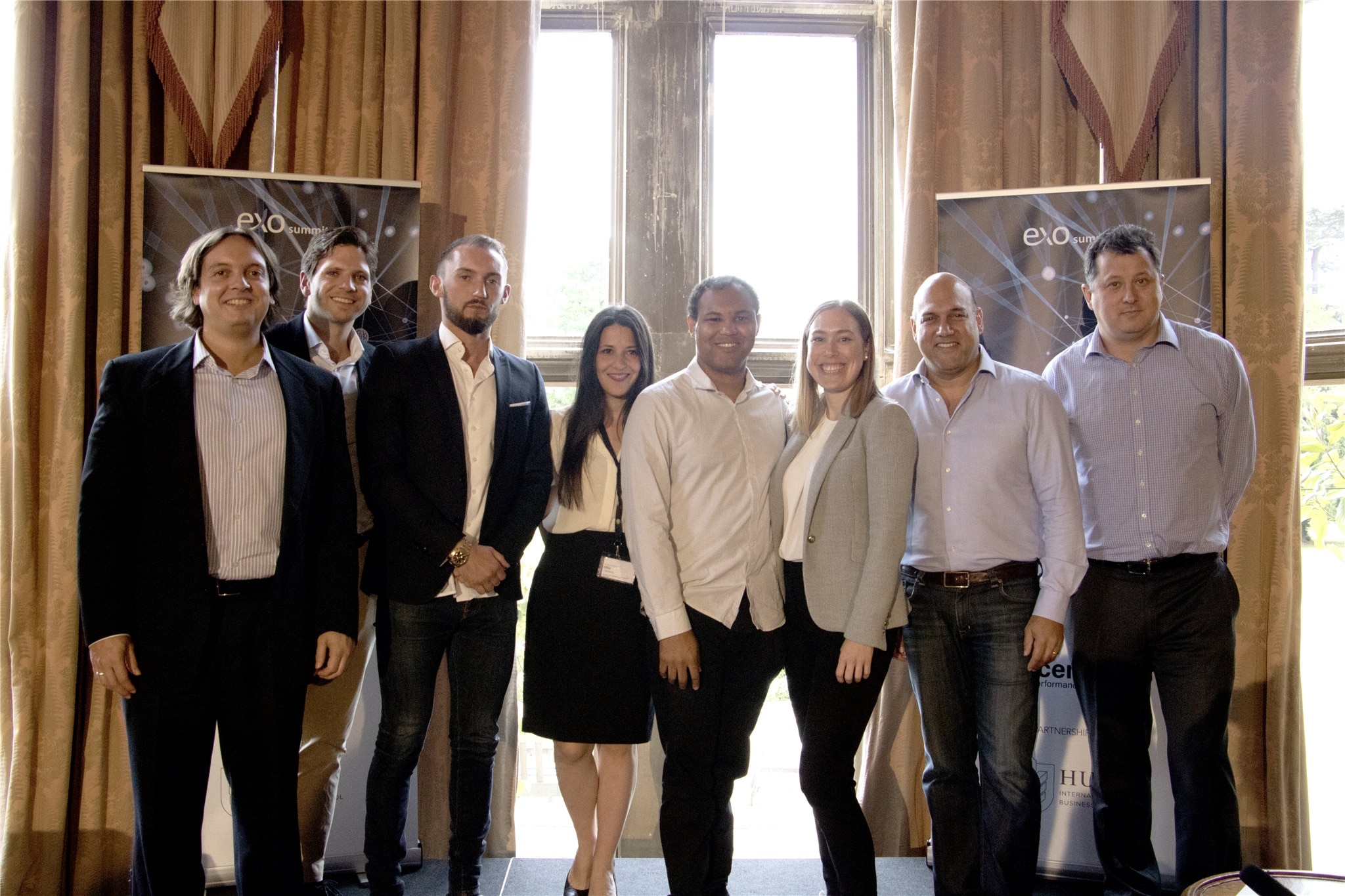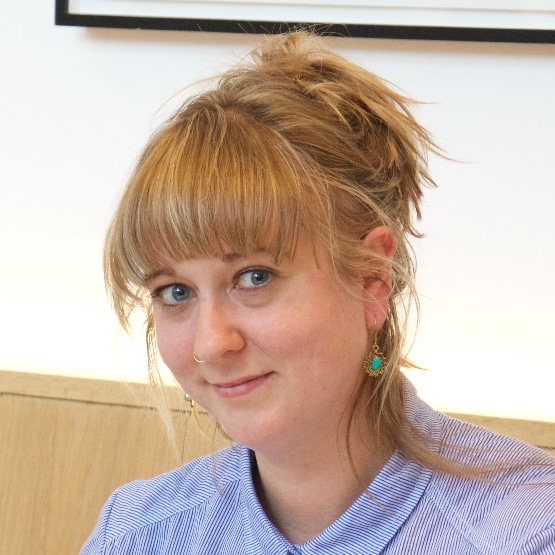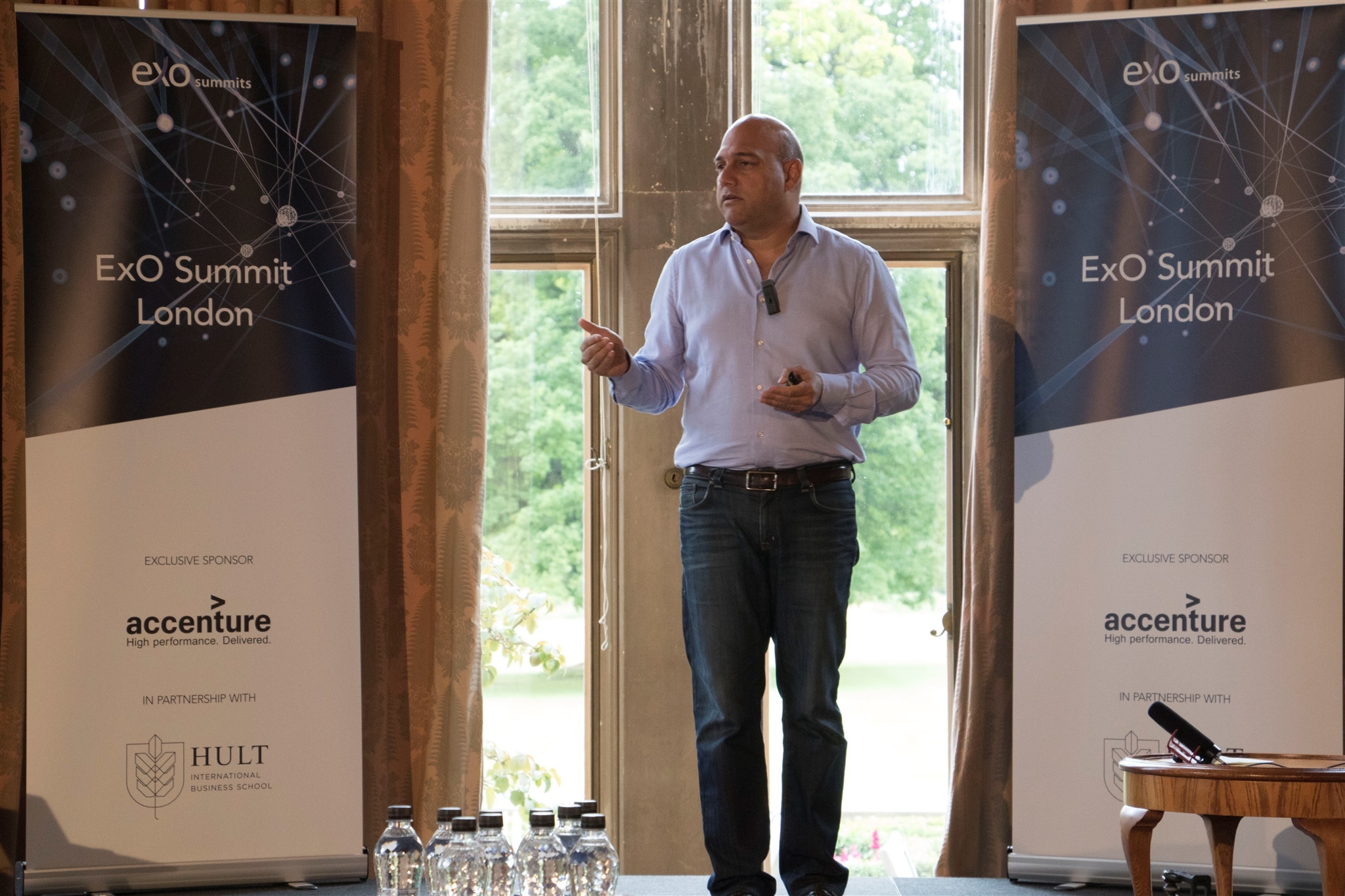Written by Laura Chung, a Hult staff blogger.
Companies are growing, and failing, faster than ever before. It is predicted that in 10 years, 40% of today’s Fortune 500 companies will no longer exist. In a world of rapidly evolving technologies and globalization, companies that leverage exponential technologies and embrace a shifting global business mindset will adapt and thrive in this era being dubbed the fourth industrial revolution.
[Tweet “In 10 years, 40% of today’s Fortune 500 companies won’t exist.”]
ExO Works is an advisory firm that was founded in response to the growing need to help organizations adapt and transform. They’ve developed the Exponential Quotient (ExQ) score, which provides a framework that indicates an organization’s ability to adapt and scale with the agility required to thrive in a new era of accelerating, or exponential, technologies.
Hult students helped ExO Works to measure each of the FTSE 100 for these attributes and score them accordingly. The ExQ FTSE rankings were announced on Thursday 28 June at Hult’s Ashridge campus in Berkhamsted U.K, with Vodafone, Barclays, and Burberry all making the top ten. You can see Salim Ismail, Co-founder and Chairman of ExO Works, announcing the rankings in the video below:
Hult’s President, Dr. Stephen Hodges, said of the collaboration:
“The challenge that all schools are facing right now is how do you train students for jobs that don’t exist yet? Hult is adapting to that in a number of ways: for example by introducing them to the newest concepts in business, like ExO Works’ Exponential Organizations. Also by ensuring they have access to the very latest developments in technology, through initiatives like our new nano courses, which focus on disruptive technologies and their implications for business. And finally by exposing them to cutting edge thinking through opportunities for research and collaboration with innovative companies.”
Salim Ismail, ExO Works’ Co-founder and Chairman, and co-author of the bestselling Exponential Organizations, has partnered with Hult on a number of occasions. He recently spoke at Hult’s London campus as part of the school’s worldwide Day of Disruption and last year worked with Hult faculty to produce the ExQ (Exponential Quotient) ranking of the Fortune 100.
This year, Hult students were involved in researching each of the FTSE 100 and mapping the information to the ExQ framework. It was an intense research project to add to an already busy schedule. So what made students want to participate, and what did they get from the project? We spoke to four MBA students who took part to find out:
So, why did you decide to take part in researching the FTSE 100 for the ExQ rankings?
“I heard Salim Ismail talk at Hult’s Day of Disruption and I was really captivated by his speech. So I jumped at the chance to work with him and his team,” said Alex Houghton (British, MBA Class of 2017)
Jane Furness (Australian, MBA Class of 2017) also heard Salim speak: “I was very impressed with Salim at Hult’s Day of Disruption so that’s what initially drew me to the project. Throughout my entire MBA program, any extracurricular experience I could get that could help bridge my career from where I’ve come to where I want to be, I’ve taken.”
“It was intriguing, analyzing the FTSE 100 in terms of how forward-thinking they were.”
Peter Hemingway (American, MBA Class of 2017) and Rodrigo Forte (Venezuelan, MBA Class of 2017) were fascinated by the concept of Exponential Organizations and wanted to know more. “I thought it was intriguing, analyzing the FTSE 100 in terms of how forward-thinking they were. I thought it would be a good learning experience to dive deep into the companies and see how they stacked up” said Peter.
Rodrigo had similar motivations: “What got my attention was the fact they were creating this framework to predict whether or not a company would be able to adapt and scale very quickly, and I wanted to know what was behind it.”


What skills did the project help you to develop?
Rodrigo: “Learning more about the agile framework was very useful. We’d been introduced to it in class but being involved in this project meant that I did a lot of independent research and now I have a much deeper understanding. Extracurricular activities only enhance your MBA experience and you actually get much more out of the program if you take part.”
Jane: “I didn’t know much about the FTSE 100 before I started this project so to learn about the inner workings of the companies was incredibly interesting. The most significant thing I’ve got out of my extracurricular projects, like this one for ExO Works, is the networks I’ve built.”
“Extracurricular activities only enhance your MBA experience and you actually get much more out of the program if you take part.”
Peter: “You need to be able to put theory into practice – projects like this test the skills we’re learning in class and push you outside of your comfort zone and force you to engage with people you don’t come across in class.”
Alex: “The purpose of an MBA is to explore business, gaining as much experience as you can out of primary research: actually doing it is fundamental to learning.”
Find out more about ExO Works by visiting their website and read the ExQ FTSE 100 rankings in full here.
Watch highlights of Salim Ismail’s fascinating speech at Hult’s Day of Disruption here.
Read more about Hult’s other student-led research projects with companies including Airbnb, Google, and Ferrari.
If you would like to find out more about our business programs, download a brochure here.


Hult offers a range of highly skills-focused and employability-driven business school programs including a range of MBA options and a comprehensive one year Masters in International Business. To find out more, take a look at our blog AI & big data: Hult builds the next-gen curriculum. Download a brochure or get in touch today to find out how Hult can help you to learn about the business world, the future, and yourself.


